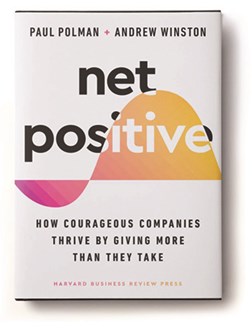How businesses can please investors by addressing society’s biggest challenges. By Paul Polman & Andrew Winston.
The last few years have been nothing if not dramatic: a global pandemic, the rise of Black Lives Matter, devastating weather fueled by climate change, stopped up supply chains, vast income inequality that got even worse, the fight for LGBTQ and women’s rights, a coup attempt in the US, and much more.
These were once issues that governments and civil society handled, with business generally preferring to seem “neutral.” But companies cannot sit on the sidelines. They must take a stand on the big environmental and social issues of the day; their stakeholders, particularly employees, demand it.

